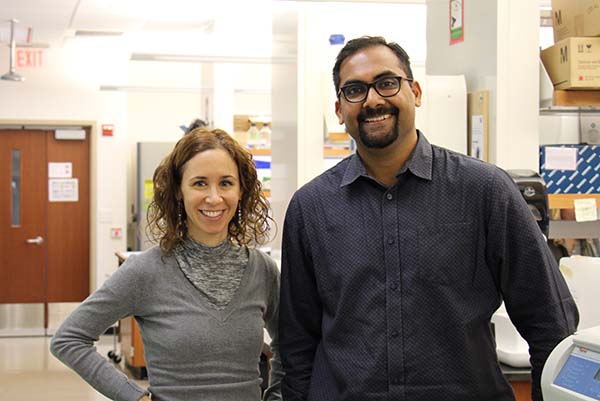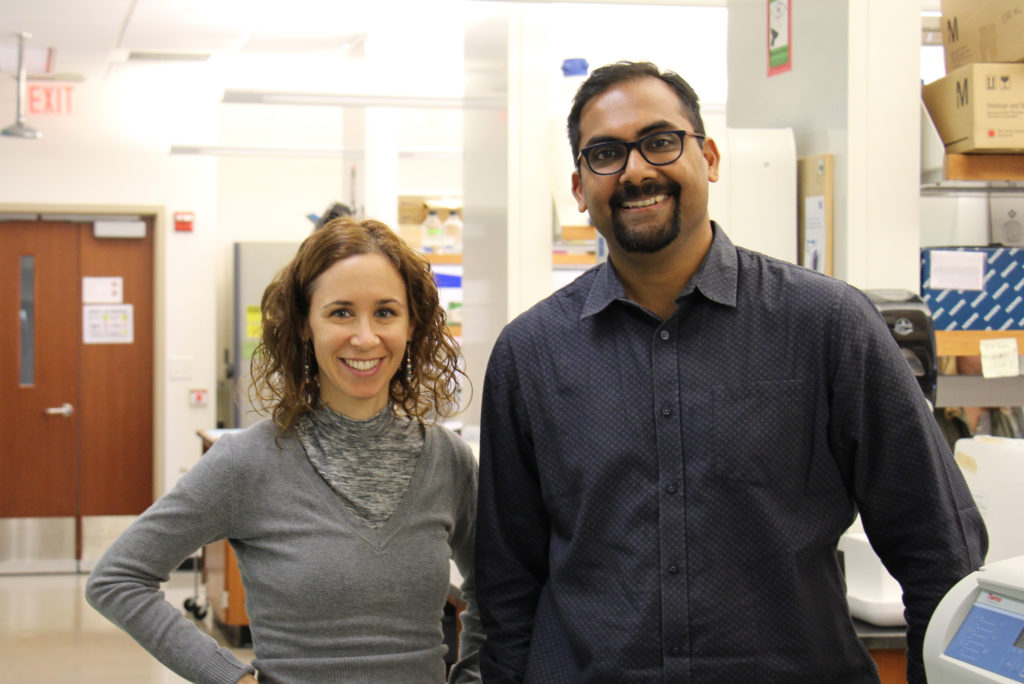UGA researchers discover a new drug target in the plastid of malaria parasites


Plasmodium species, the parasites that cause malaria, contain a unique organelle known as the apicoplast. Dr. Vasant Muralidharan and his colleagues at the University of Georgia’s Center for Tropical and Emerging Global Diseases have been seeking to unlock the many secrets this organelle holds for the survival of the parasite in hopes of discovering new drug targets. Previously, they had shown that a certain protein, part of a putative protease complex, was essential for parasite growth. In a study published in PNAS, they reveal why this complex is so important.
In countries where malaria parasites are present it is often the leading cause of death. In 2018, about 228 million people were infected and 405,000 people died from malaria. Most of the malaria-related deaths are young children in sub-Saharan Africa. However, it is estimated that almost half of the world’s population is at risk of contracting malaria.
Malaria is caused by several species of Plasmodium. The deadliest species, Plasmodium falciparum, has gained resistance to all currently available treatment and there is a pressing need to identify new ways to target this parasite.
“The discovery of antimalarials is a top priority,” said Muralidharan, an associate professor in Franklin College’s department of cellular biology.
That is why Dr. Anat Florentin, a postdoctoral research associate in the Muralidharan group is so interested in understanding the apicoplast’s role in the survival of the parasite. The Plasmodium apicoplast shares molecular characteristics that are similar to bacteria and plants, but not humans.
“The plastid is present only in the parasite and not in human cells, and therefore, drugs targeting plastid proteins specifically kill the parasite,” said Florentin. She goes on to state that “several antibacterials targeting protein translation in the plastid are used clinically.”
The apicoplast does not control its own protein synthesis. Only a small fraction of plastid proteins is actually made in the organelle. Most are encoded in the parasite nucleus, synthesized in the endoplasmic reticulum and transported into the apicoplast via the secretory pathway. If researchers could interfere with any of these processes then the parasite would die. Dr. Muralidharan and his team went looking for how the plastid controls protein expression in the plastid.
In bacteria and plants, Caseinolytic protease (Clp) proteins regulate such functions as cell division, stress responses, and metabolism. They suspected that a similar Clp complex existed in the apicoplast and is essential for parasite survival through its role in protein degradation in the plastid. In this study, they discovered why this protease complex is so important to the malaria parasite – it regulates the lifespan of proteins in the apicoplast, and thus, it is important to the biogenesis of this organelle. The work by Muralidharan and colleagues at the CTEGD showed that when they interfered with the activity, or interactions, or expression of this protease complex, P. falciparum parasites died because the parasites lost the apicoplast.
“Targeting this protease complex with a drug will lead to a more efficient inhibition of plastid biology and this makes it an excellent antimalarial drug candidate. Therefore, future work will focus on identifying inhibitors of this complex” said Muralidharan.
